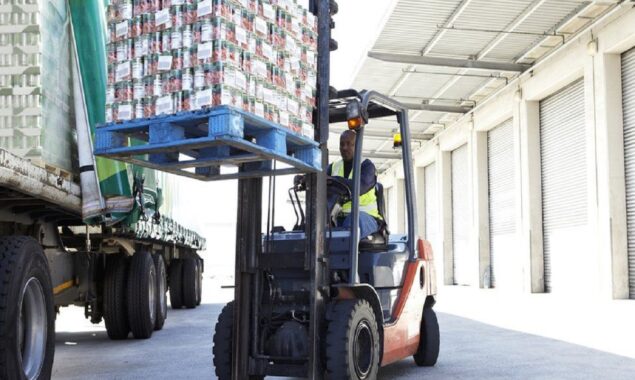Walgreens tops earning targets as retail growth offsets Covid decline
Walgreens Boots Alliance reported quarterly sales and profitability that beat estimates. Shares...

The supermarket rows you don’t usually hear about. (credits: Google)
Arguments between major brands and supermarkets typically take place behind closed doors, but one has just suddenly broken open.
Tesco, the largest retailer in the United Kingdom, and Kraft Heinz, one of the biggest food producers in the world, are at odds.
Some of the nation’s favourite goods, including Heinz ketchup and baked beans, have vanished off Tesco’s shelves as a result.
As a result of a disagreement over the price Tesco is willing to pay for its products, Kraft Heinz has halted deliveries.
It serves as an example of the difficulties suppliers and retailers are encountering as a result of significant cost hikes.
But who should suffer from paying for rising energy prices, ballooning raw material costs, and increased fuel expenses for deliveries?
All around retail, price talks are taking place. They have been ongoing for a long time.
“These days, suppliers will state, “This is the price I can afford to provide this goods to you for.” And I’ll cease supplying you if you don’t agree,” “According to Ged Futter, the company’s creator.
He is more aware than most of how heated these debates are. Former Asda buyer Mr. Futter now gives suppliers advice on how to bargain with retailers.
“As we speak, my client is speaking with a retailer about a pricing that needs to be agreed upon tomorrow; if they don’t do so by tonight, the trucks will stop.
“I’ve never seen as many suppliers ready to stop the trucks, and I have examples from every single retailer, with Aldi being the exception, of customers having to stop the vehicles.”
Buyers who sign contracts with suppliers to supply products to supermarkets are known as buyers. It may be an annual contract for numerous things, including canned tomatoes and olive oil.
The Groceries Supply Code of Practice permits both parties to modify the terms and conditions. Adam Leyland, the editor-in-chief of the Grocer magazine, claims that whereas in the past retailers would frequently request adjustments, suppliers are now pushing for a renegotiation of their compensation.
“Suppliers claim that we must make changes swiftly. The supermarket industry has been taking its time for a very long time. The intensity has increased since last year as this has been growing.
“Both parties are at risk. It’s not a good moment right now.”
Costs are rising at a once-in-a-generation rate throughout the whole food supply chain. The rate of inflation for manufacturers has already reached 22%, according to the Office for National Statistics.
How then do these negotiations proceed?
Ged Futter claims that in order to assist retailers in determining whether price increases are justified, suppliers are frequently required to complete a cost justification sheet.
Line by line, every step taken to create a product is dissected and examined.
“Let’s use cardboard. The provider can state, “Ours has increased by 40%.” However, the retailer can respond, “Well, our costs have just gone up by 20 percent, therefore I’m not giving you 40 percent, I’m only giving you 20 percent,” “offering you 20%,” he says.
Additionally, he asserts that some stores employ delay strategies to avoid an increase altogether.
For instance, “if a significant price hike is scheduled to go into effect in 12 weeks, what you’ll likely hear from many merchants is radio silence for 11 and a half weeks.”
Additionally under pressure are supermarkets, which have slim profit margins.
The pricing of the most popular items is being fought over in the aisles to make it as low as possible for shoppers.
Buying teams are simultaneously bombarded with requests from hundreds of vendors. They also want to make sure that any expense increases are necessary.
One source from a supermarket claims that “suppliers always add on a little bit.”
Some of the expenses are being covered, while others are being passed on to customers. Currently, food price inflation is hovering at 8%.
According to Ged Futter, some of his clients are currently seeing the fourth or fifth round of cost price rises.
Who will blink first in the argument between Kraft Heinz and Tesco?
Tesco is two times as big as its closest competitor and commands enormous power. One of the few large firms with the ability to hold its own is the worldwide behemoth Kraft Heinz.
Unusually, they both made public views on the subject as well.
According to Tesco, it won’t be passing on “unjustified price rises” to its customers. Heinz claims that despite increased costs for raw materials and production, it would not sacrifice quality.
As the cost of living problem begins to bite, Tesco obviously wants to be recognised as a consumer advocate.
Adam Leyland believes the store is also communicating with its major suppliers on a larger scale.
According to him, they want suppliers to understand that they won’t submit to pressure and accept everything that is put out.
Tesco cannot afford to keep empty shelves for very long considering that hundreds of thousands of Heinz products are sold each week. Customers running the risk of switching stores for their Heinz baked beans and even their entire weekly shopping trip.
Although it can be challenging to establish the right balance, Mr. Leyland predicts that a settlement will eventually be reached.
They “will endeavour to reach an elegant compromise,” in my opinion.
Catch all the Business News, Breaking News Event and Latest News Updates on The BOL News
Download The BOL News App to get the Daily News Update & Follow us on Google News.